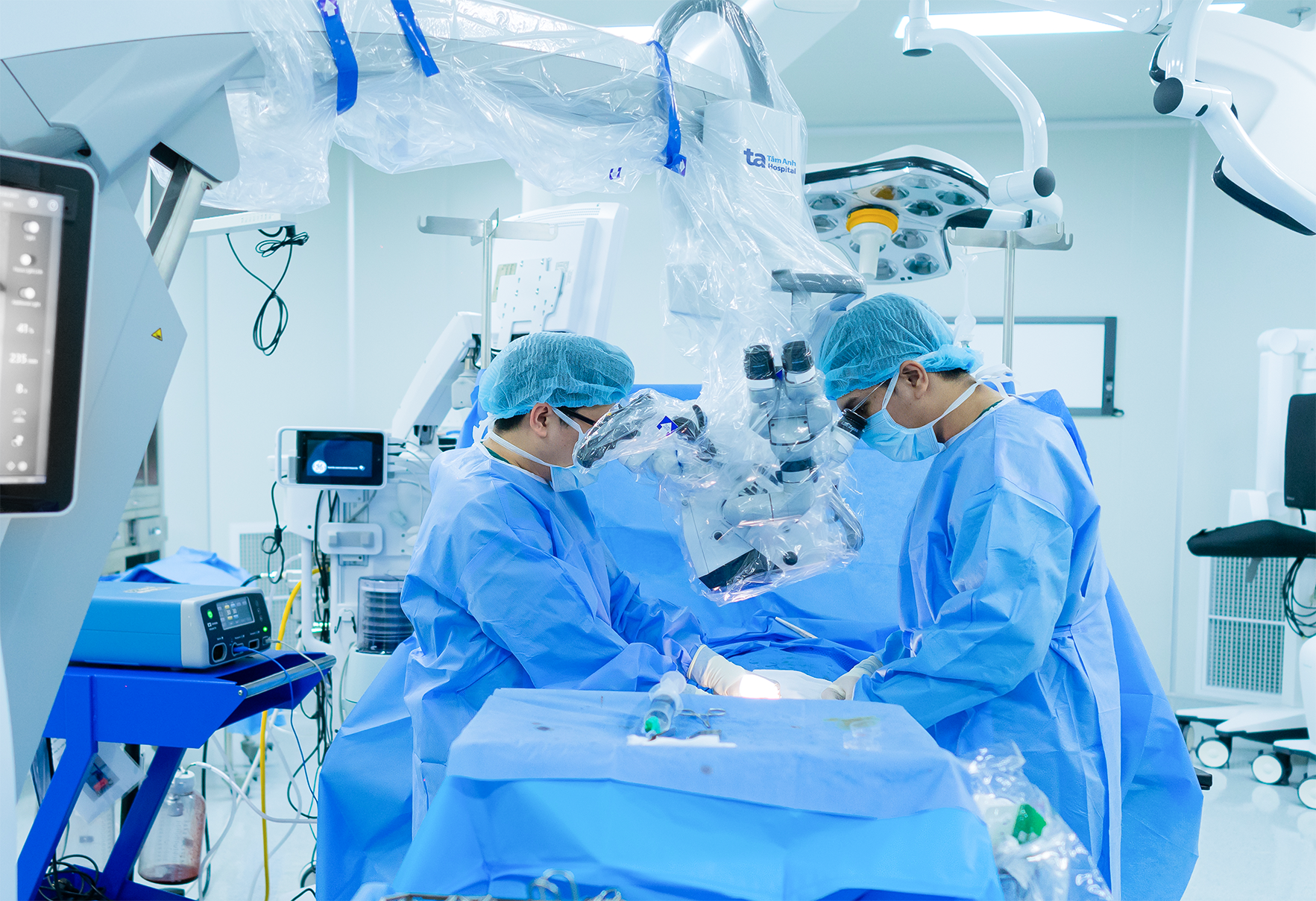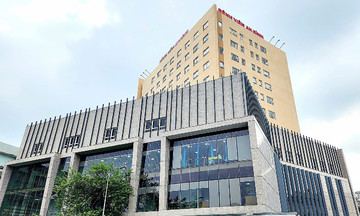Tien was born with bilateral undescended testicles and underwent surgery 15 years ago, along with three corrective procedures for hypospadias. Six months ago, during a pre-marital checkup, his semen analysis revealed azoospermia (absence of sperm).
Doctor Nguyen Cong Danh from the Fertility Support Center at Tam Anh General Hospital in Ho Chi Minh City, noted that Tien’s testicular volume was only 2-4 ml (normal range is 12-30 ml), and his hormone tests showed significant abnormalities. His FSH (follicle-stimulating hormone) level was over 40 lU/L, 4-5 times higher than normal, and his testosterone levels were low. Genetic testing revealed a deletion in the AZFc region of the Y chromosome, which contains genes essential for sperm production. This chromosomal abnormality can lead to reduced sperm count or azoospermia, causing infertility. Additionally, Tien’s multiple genital surgeries resulted in significant scarring and adhesions.
"This is a complex case due to the presence of multiple issues and conditions, making the prospect of finding sperm low," Dr. Danh explained. He added that micro-TESE (microdissection testicular sperm extraction) was the only way to dissect the scarred and adhered testicular tissue without causing further damage.
With micro-TESE, only a small amount of tissue is removed, minimizing damage to blood vessels and preserving the remaining testosterone production capacity of the testicles. Instead of the usual approach through the scrotum, the surgical team accessed the testicles directly. Using a microscope with 30x magnification, they identified potential seminiferous tubules and transferred them to the lab. Embryologists then dissected the tissue samples and found enough sperm to combine with Tien’s wife's eggs, which were retrieved the same day. Four day-5 embryos were successfully cultured, and one was transferred to the wife's uterus.
 |
Dr. Danh (right) performing micro-TESE to retrieve sperm. Photo: Tam Anh General Hospital |
Dr. Danh (right) performing micro-TESE to retrieve sperm. Photo: Tam Anh General Hospital
Undescended testicles are a relatively common birth defect in boys, occurring when one or both testicles fail to descend into the scrotum. This condition elevates testicular temperature, permanently damaging sperm-producing cells, reducing sperm quality and quantity, and potentially leading to infertility in adulthood.
According to Dr. Danh, men with bilateral undescended testicles have a 6 times higher risk of infertility than the general male population and an increased risk of testicular cancer. Early surgery, ideally between 6-12 months of age, is recommended for boys diagnosed with undescended testicles to preserve future fertility. Even if surgery is performed later, and the testicles are brought down into the scrotum, fertility may still be compromised.
Men with azoospermia due to AZFc deletions still have a chance to have biological children through micro-TESE. If they have sons, the genetic condition may be inherited. These sons should undergo semen analysis after age 18. If sperm is present, sperm banking is recommended to ensure future fertility, as sperm quality and quantity can decline over time.
Dinh Lam
*The patient's name has been changed.
| Readers can submit questions about infertility here for doctors to answer. |












